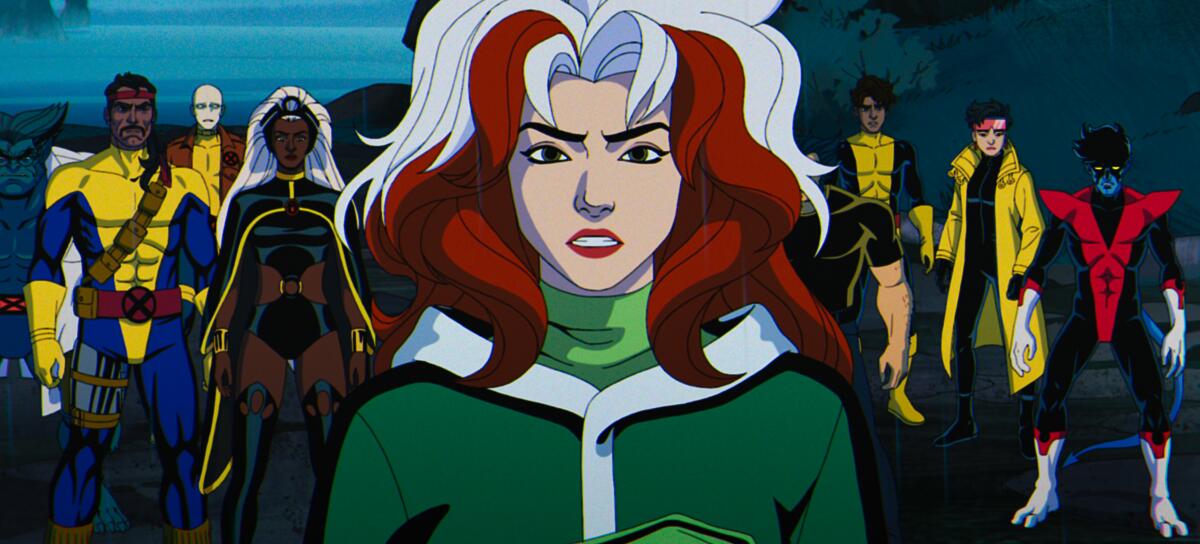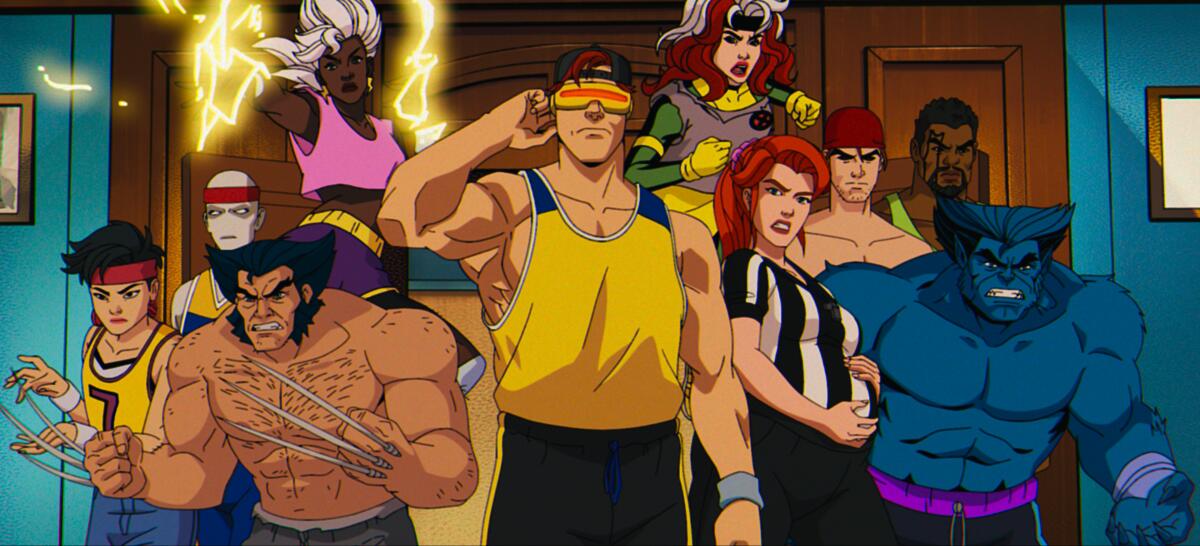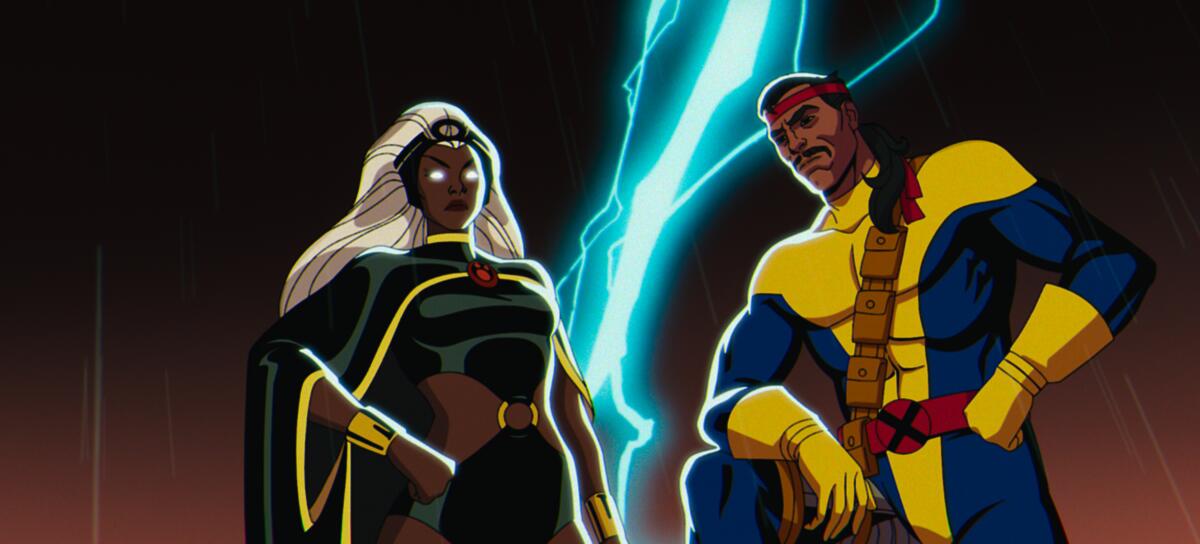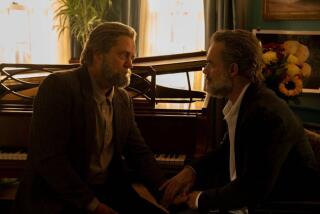Commentary: ‘X-Men ’97’ challenges us to think about our capacity for tolerance

This story includes spoilers for “X-Men ’97” on Disney+, including the season finale.
Professor Charles Xavier knows coexistence isn’t easy.
After being repeatedly denigrated by members of a technologically advanced alien race for being “born on the wrong side of the stars,” Xavier sits his potential future spouse and in-laws down for a history lesson to discuss their supremacist beliefs in the sixth episode of “X-Men ’97.”
Forcing others to assimilate into their empire, the founder of Earth’s mutant superhero team says, is based on “the lie” that “we must pillage worth from one another. That for me to be more, you must be less. Your existence against mine.”
It’s a mentality Xavier is more than familiar with, having devoted his life to advocating for the peaceful coexistence of mutants and humans on his home planet. That same misguided belief that humanity and mutants are in competition with one another brought Earth to the brink of catastrophe in the first season of “X-Men ’97.” The season finale of the animated series, the conclusion of a three-part episode titled “Tolerance Is Extinction,” is out now on Disney+.

The multipart episode saw the X-Men divided after learning Bastion, the mastermind behind the latest effort to eradicate all mutants, is an advanced human-android hybrid. Those among the X-Men who were disillusioned with humanity’s continued refusal to accept them joined their former foe Magneto, ready to let Earth perish along with Bastion and his powerful mechanical army and human sleeper agents rather than try to save it.
Picking up after the events of “X-Men: The Animated Series,” which originally aired from 1992 to 1997, “X-Men ’97” follows the eponymous superhero team as they fight to protect the world and each other. This first season saw the team forced to accept a former adversary as their new leader and discovering one of their own was a clone while dealing with a genocide and its aftermath.
Unlike other heroes whose superpowers are the result of lab accidents or secret experiments, the X-Men are mutants: humans born with a special gene that gives them their various abilities. Xavier is a powerful telepath. Storm controls the weather. Cyclops blasts powerful energy beams from his eyes. Rogue can absorb the powers, memories and even life force of others through touch. Beast is a furry blue super-genius with enhanced strength.
A comic book superhero team co-created by Stan Lee and Jack Kirby in the 1960s, the X-Men are unique because they have long had to fight against prejudice and discrimination in addition to battling supervillains trying to take over the world.
The distinct instrumental opening theme of “X-Men: The Animated Series” will always remind me of the excitement and wonder I felt whenever I sat down to watch the show as a kid in the ’90s.
Mutants are feared and persecuted just for being born a little bit different — in abilities and sometimes also in appearance. Their stories often have been allegories to the racism, homophobia and other bigotry those of different marginalized identities experience in the real world.
“X-Men ’97” has leaned into this from its first episode, showing how anti-mutant sentiment motivates hate groups, foments violence and even influences policy. And it all comes to a head in the show’s devastating fifth episode, titled “Remember It,” when the island nation of Genosha — which has become a safe haven for mutants — is suddenly attacked by a horde of killer robots.
The country is laid to waste and there are countless casualties, including the charming “X-Men” fan favorite Gambit. Former “X-Men ’97” head writer Beau DeMayo, who exited the series prior to its premiere (why he left remains unclear), previously addressed the significance of the episode on social media.
“The idea,” he wrote in a statement shared on X, formerly Twitter, was “to have the X-Men mirror the journey that any of us who grew up on the original show have experienced since being kids in the ’90s.” He cited events like 9/11, the Pulse Nightclub shooting in 2016 and even the 2017 white supremacist rally in Charlottesville, Va., as some of the collective traumas that generation has had to reckon with.
As a budding queer biracial kid, watching “X-Men: The Animated Series” was a bit of a salve for me growing up. While mutant experiences can speak to many different marginalized identities directly or metaphorically, the more queer-coded elements — questions around “coming out,” the fear of being rejected by family, strangers insisting mutants just needed to be “cured” — were often what I related to most then. A show that insisted your differences are a superpower and celebrated found families was particularly meaningful.
Those elements have carried over into “X-Men ’97.” At a time when some politicians and activists have pushed for anti-LGBTQ+ laws, including those that bar any mention of sexual orientation and gender identity in classrooms, banned gender-affirming care and prohibited trans students from competing in sports or using restrooms that align with their gender, the themes feel as relevant as ever. It’s also a bit disappointing to realize that, all these years later, our existence seems to be relegated to metaphors once again.

At the forefront of “X-Men ’97’s” final episodes has been Xavier and his former best friend Magneto’s opposing philosophies regarding human-mutant relations. Xavier advocates for peaceful coexistence based on acceptance and equal rights for all. Magneto, a Holocaust survivor who is often the X-Men’s adversary, doesn’t believe humanity is capable of accepting mutants. He will do anything to stop mutants from being persecuted simply because of who they are. And the humans in the series keep showing Magneto is right.
“Humanity would rather die than have kids like us,” Bastion says as mankind launches missiles to take out the mutants fighting on an asteroid, regardless of what side they are on.
By orchestrating the mutant massacre in Genosha, Bastion incited the fears of both humans and mutants. He weaponized people’s fear of being replaced by mutants by turning them into killer robots while providing Magneto justification to retaliate with an all-out war.
It’s hard to avoid seeing some parallels to other real-life conflicts in the situation — that’s what “X-Men” does best, after all. It’s a credit to the series that it effectively channels the dangers of extremism, but condemnation in metaphors is not enough when far-right groups with radical views continue to rally and hate crimes persist.
It’s a disservice to make a simple comparison between a war being waged in an animated series and the suffering of Palestinian civilians trapped in the middle of Israel’s offensive in Gaza after Hamas’ attack on Oct. 7. But it makes you wonder why it’s so easy to describe the events on a show as a genocide, when arguments persist about whether the word applies after thousands of Palestinians have died (the toll is now more than 35,000, according to the U.N.). Or why people seem to focus so much more on “the right way” to call for a ceasefire than the actual horrors of war.
Of course, in cartoons, you get exaggerated villains who are easier to call out because they’re fictional characters. And as easy it is to empathize with Magneto and the grief and anger that drive his followers, it’s also clear that he’s still the villain because it’s a TV show (and he has no regard for civilian casualties), whereas Xavier and the X-Men, even as they suffer losses and experience doubt, are generally understood to be the ones standing up for justice. We can joke about Magneto being right, but do we really agree with him?
As “X-Men ’97” challenges us to consider how we might respond to tragedies and an attack like the one on Genosha, it’s hard not to think about how we are (or are not) responding to actual suffering, no matter how far away.
More to Read
The complete guide to home viewing
Get Screen Gab for everything about the TV shows and streaming movies everyone’s talking about.
You may occasionally receive promotional content from the Los Angeles Times.







